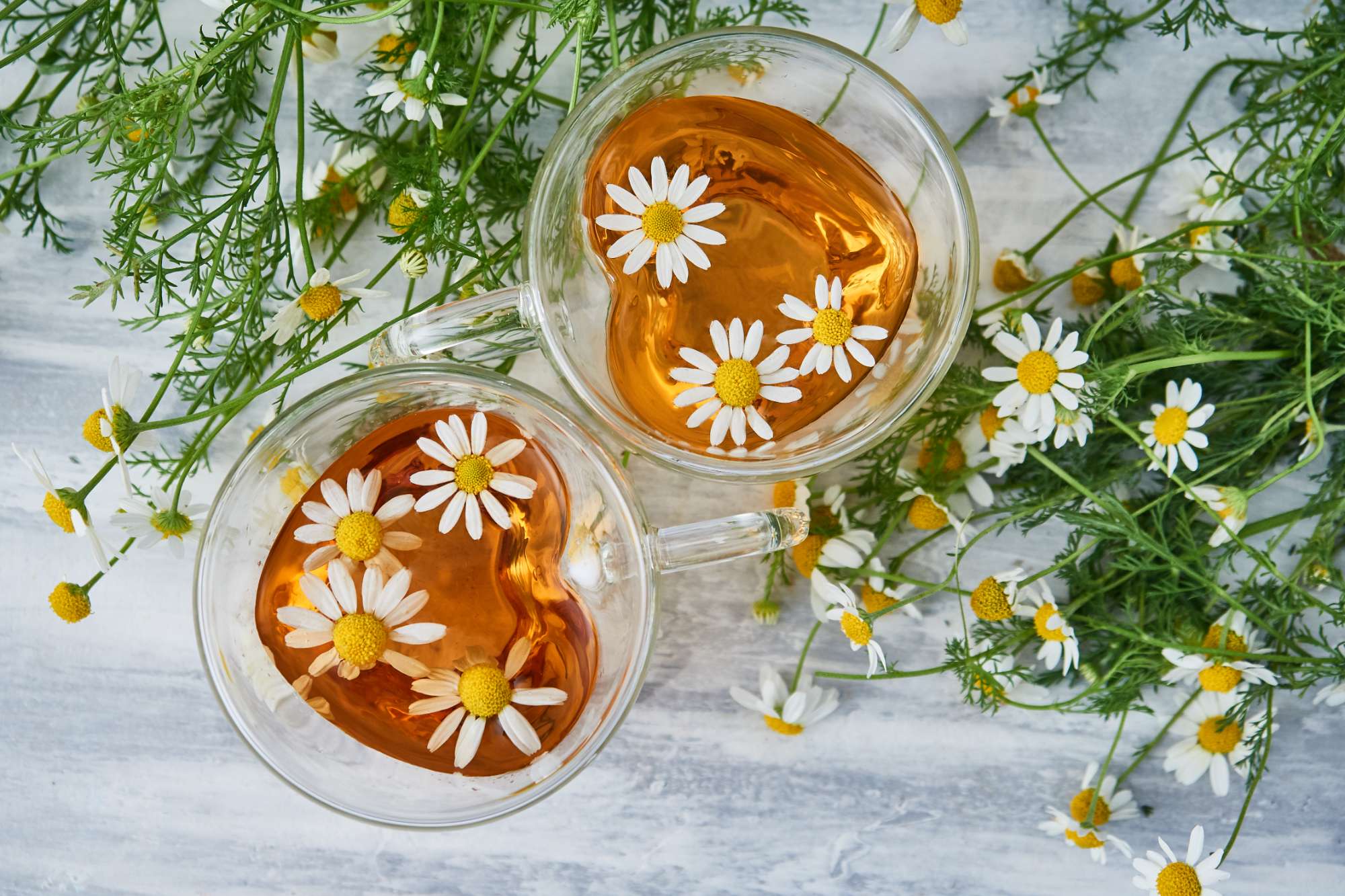Chamomile is one of the most ancient medicinal herbs known to mankind
Chamomile is one of the most ancient medicinal herbs known to mankind
Chamomile is one of the most ancient medicinal herbs known to mankind. The dried flowers of chamomile contain many terpenoids and flavonoids contributing to its medicinal properties. Chamomile preparations are commonly used for many human ailments such as hay fever, inflammation, muscle spasms, menstrual disorders, insomnia, ulcers, wounds, gastrointestinal disorders, rheumatic pain, and hemorrhoids. Essential oils of chamomile are used extensively in cosmetics and aromatherapy. Many different preparations of chamomile have been developed, the most popular of which is in the form of herbal tea consumed more than one million cups per day.
Chamomile (Matricaria recuita) is a flowering plant in the daisy (Asteraceae) family. Native to Europe and Western Asia, it's now found around the world. The herb smells slightly like an apple, which may explain its name - chamomile is Greek for Earth apple.
There are two different chamomile plants: German chamomile and Roman chamomile. German chamomile, which is considered the more potent variety and the type most widely used for medicinal purposes, is the plant discussed here. Chamomilla also known as Matricaria recutit, Chamomilla recutita, German chamomile, Hungarian chamomile, True chamomile.
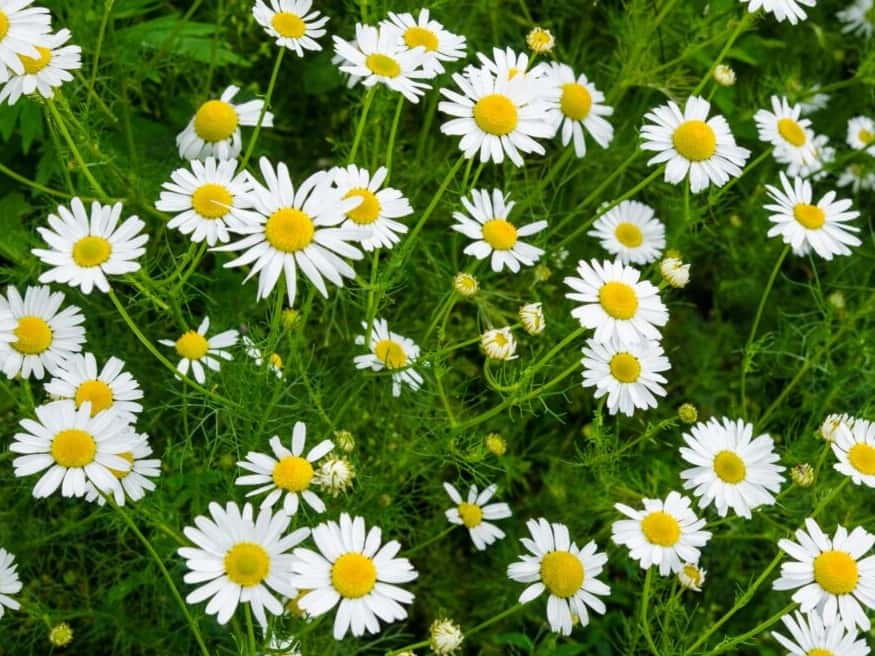
Roman Chamomile

German Chamomile
CHAMOMILE HEALTH BENEFITS
1. Anti-inflammatory and antiphlogistic properties
The flowers of chamomile contain 1–2% volatile oils including alpha-bisabolol, alpha-bisabolol oxides A & B, and matricin (usually converted to chamazulene and other flavonoids which possess anti-inflammatory and antiphlogistic properties.
A study in human volunteers demonstrated chamomile flavonoids and essential oils penetrate below the skin surface into the deeper skin layers. This is important for their use as topical antiphlogistic (anti-inflammatory) agents. One of chamomile’s anti-inflammatory activities involve the inhibition of LPS-induced prostaglandin E release and attenuation of cyclooxygenase (COX-2) enzyme activity without affecting the constitutive form, COX-1.
2. Anticancer activity
Chamomile contains the antioxidant apigenin. In test-tube studies, apigenin has been shown to fight cancer cells, especially those of the breast, digestive tract, skin, prostate and uterus.
3. May Improve Heart Health
Chamomile is a great source of flavone antioxidants that may play a role in improving heart health. Flavones have been studied for their potential to lower blood pressure and cholesterol levels, which are important markers of your heart disease risk.
One study of 64 diabetic patients found that those who drank chamomile tea with meals had noteworthy improvements in their total cholesterol, triglyceride and “bad” LDL cholesterol levels, compared to those who drank water.
More research is necessary to confirm chamomile tea’s role in promoting heart health, but it certainly couldn’t hurt to include it in your diet.
4. May Benefit Blood Sugar Control
The anti-inflammatory effects of chamomile tea may promote blood sugar control, especially when it’s consumed with a meal.
Its anti-inflammatory properties may prevent damage to the cells of your pancreas, which occurs when your blood sugar levels are chronically elevated. The health of your pancreas is extremely important, as it produces insulin, the hormone responsible for removing sugar from blood.
In one study of 64 diabetic people, those who consumed chamomile tea daily with meals for eight weeks had significantly lower average blood sugar levels than those who consumed water.
Additionally, several animal studies suggest that chamomile tea may lower fasting blood sugar levels by a considerable amount, and it may also be beneficial for preventing blood sugar spikes after eating.
5. Diabetes
Studies suggest that chamomile ameliorates hyperglycemia and diabetic complications by suppressing blood sugar levels, increasing liver glycogen storage and inhibition of sorbitol in the human erythrocytes. The pharmacological activity of chamomile extract has shown to be independent of insulin secretion, and studies further reveal its protective effect on pancreatic beta cells in diminishing hyperglycemia-related oxidative stress. Additional studies are required to evaluate the usefulness of chamomile in managing diabetes.
6. May Promote Digestive Health
Proper digestion is extremely important for your overall health. Some evidences suggest chamomile may be effective for promoting better digestion by reducing the risk of certain gastrointestinal conditions.
Chamomile is rich in flavonoids that have anti-inflammatory properties, so researchs have shown that Chamomile extract has the ability to prevent symptoms of nausea and bloating. Chamomile has the potential to protect against diarrhea and prevent stomach ulcers because it can reduce acid levels and inhibit the growth of bacteria that contribute to ulcer development.
7. Sleep aid, sedation
Traditionally, chamomile preparations such as tea and essential oil aromatherapy have been used to treat insomnia and to induce sedation (calming effects). Chamomile is widely regarded as a mild tranquillizer and sleep-inducer.
Sedative effects may be due to the flavonoid, apigenin that binds to benzodiazepine receptors in the brain. Compounds, other than apigenin, present in extracts of chamomile can also bind BDZ and GABA receptors in the brain and might be responsible for some sedative effect; however, many of these compounds are as yet unidentified.
Many findings are promising, but more studies are necessary to determine the extent of chamomile tea’s effects on sleep. Nevertheless, drinking chamomile tea before bed is certainly worth a try if you have trouble falling or staying asleep.
8. Wound healing
The efficacy of topical use of chamomile to enhance wound healing was evaluated in a double-blind trial on 14 patients who underwent dermabrasion of tattoos. The effects on drying and epithelialization were observed, and chamomile was judged to be statistically efficacious in producing wound drying and in speeding epithelialization. Antimicrobial activity of the extract against various microorganisms was also assessed. The test group, on day 15, exhibited a greater reduction in the wound area when compared with the controls (61 % versus 48%), faster epithelialization and a significantly higher wound-breaking strength. In addition, wet and dry granulation tissue weight and hydroxyproline content were significantly higher. The increased rate of wound contraction, together with the increased wound-breaking strength, hydroxyproline content and histological observations, support the use of M. recutita in wound management. Recent studies suggest that chamomile caused complete wound healing faster than corticosteroids. However, further studies are needed before it can be considered for clinical use.
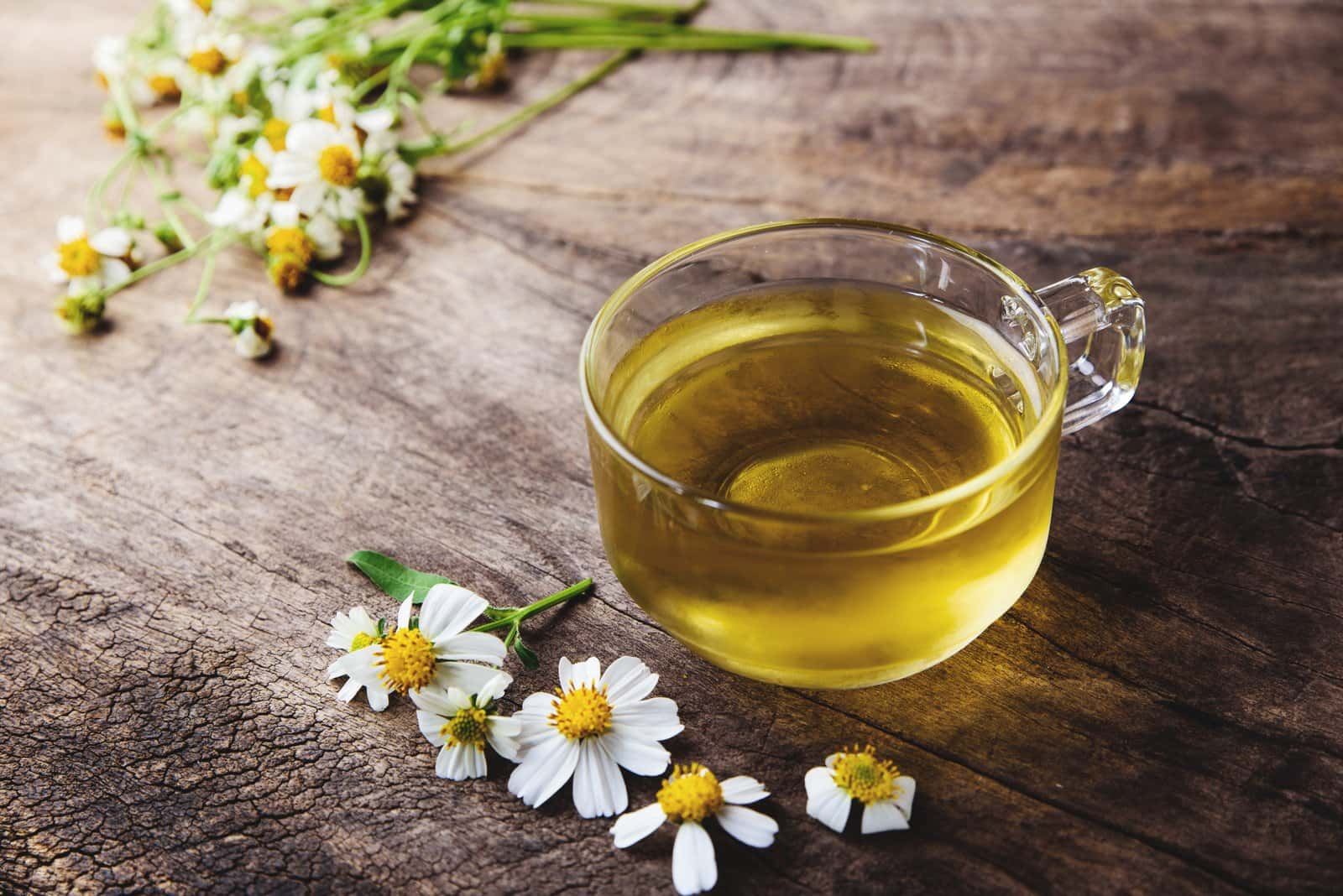
Other Potential Health Benefits
Boosts immune health: Chamomile tea is often promoted as a strategy for preventing and treating the common cold, but evidence for this is lacking. It has also been said to be soothing for sore throats.
Relieves anxiety and depression: There is some evidence that chamomile may reduce the severity of anxiety and depression, but this is mostly based on using it as an aromatherapy or taking it as a supplement.
Improves skin health: It has been reported that applying chamomile to the skin via cosmetic products, such as lotions, eye creams and soaps, may be moisturizing and helpful for reducing skin inflammation.
Eczema: Topical applications of chamomile have been shown to be moderately effective in the treatment of atopic eczema . It was found to be about 60% as effective as 0.25% hydrocortisone cream. Roman chamomile of the Manzana type (Kamillosan (R)) may ease discomfort associated with eczema when applied as a cream containing chamomile extract.
Vaginitis: Vaginal inflammation is common in women of all ages. Vaginitis is associated with itching, vaginal discharge, or pain with urination. Atrophic vaginitis most commonly occurs in menopausal and postmenopausal women, and its occurrence is often associated with reduced levels of estrogen. Chamomile douche may improve symptoms of vaginitis with few side effects. There is insufficient research data to allow conclusions concerning possible potential benefits of chamomile for this condition.
Osteoporosis: Osteoporosis is a metabolic bone disease resulting from low bone mass (osteopenia) due to excessive bone resorption. Sufferers are prone to bone fractures from relatively minor trauma. Agents which include selective estrogen receptor modulators or SERMs, biphosphonates, calcitonin are frequently used to prevent bone loss. To prevent bone loss that occurs with increasing age, chamomile extract was evaluated for its ability to stimulate the differentiation and mineralization of osteoblastic cells. Chamomile extract was shown to stimulate osteoblastic cell differentiation and to exhibit an anti-estrogenic effect, suggesting an estrogen receptor-related mechanism. However, further studies are needed before it can be considered for clinical use.
Hemorrhoids: Studies suggest that chamomile ointment may improve hemorrhoids. Tinctures of chamomile can also be used in a sitz bath format. Tincture of Roman chamomile may reduce inflammation associated with hemorrhoids
Although these health claims lack evidence, that does not mean they are false. They simply have not been studied yet and may be in the future.

POSSIBLE SIDE EFFECTS
Chamomile is part of the same plant family as ragweed and chrysanthemum, so people with allergies to these plants may react - sometimes severely - when they use chamomile either internally or topically. Though reactions are reportedly more common with Roman chamomile, call your healthcare provider if you experience vomiting, skin irritation, or allergic reactions (chest tightness, wheezing, hives, rash, itching) after chamomile use.
CONTRAINDUICATIONS
Chamomile contains coumarin, a naturally-occurring compound with anticoagulant or blood-thinning effects. It should not be combined with Coumadin (warfarin) or other medications or supplements that have the same effect or be used by people with bleeding disorders without a healthcare provider's supervision.
An isolated case has been reported of a 70-year-old woman who developed severe internal bleeding after drinking four to five cups of chamomile tea for a sore throat and using a chamomile-based skin lotion four to five times a day. The woman was being treated with the drug warfarin for a heart condition. It’s believed that the chamomile tea (and possibly the lotion) acted synergistically with the warfarin to cause bleeding.
Due to concerns about bleeding, chamomile shouldn't be used two weeks before or after surgery.
German chamomile might act like estrogen in the body. If you have any condition that might be made worse by exposure to estrogen, including hormone-sensitive conditions like breast cancer, uterine cancer, ovarian cancer, endometriosis, or uterine fibroids, don't use it without consulting your healthcare provider.
Keep in mind that chamomile in any form should be used it as a supplement to, and not a replacement for, your usual medication regimen. Talk to your healthcare providers before taking chamomile if you’re taking any type of medicine. Giving them a full picture of what you do to manage your health will help to ensure coordinated and safe care.
Be aware, too, that not all supplements have been tested for safety and, due to the fact that dietary supplements are largely unregulated, the content of some products may differ from what is specified on the product label. Also note that the safety of supplements in pregnant women, nursing mothers, children, and those with medical conditions or who are taking medications have not been established.
Compiled and penned by Crocus Media
Products
.jpg)
Chrysanthemum tea
Chrysanthemum tea is a herbal tea with bitter tastes, coolness, heat clearing, helps reduce acne, nourishes the body, cools the liver, detoxifies, curing neurasthenia, support cancer treatment, ... Chrysanthemum tea is made from 100% natural herbs, no preservatives, no flavoring, safe for health.
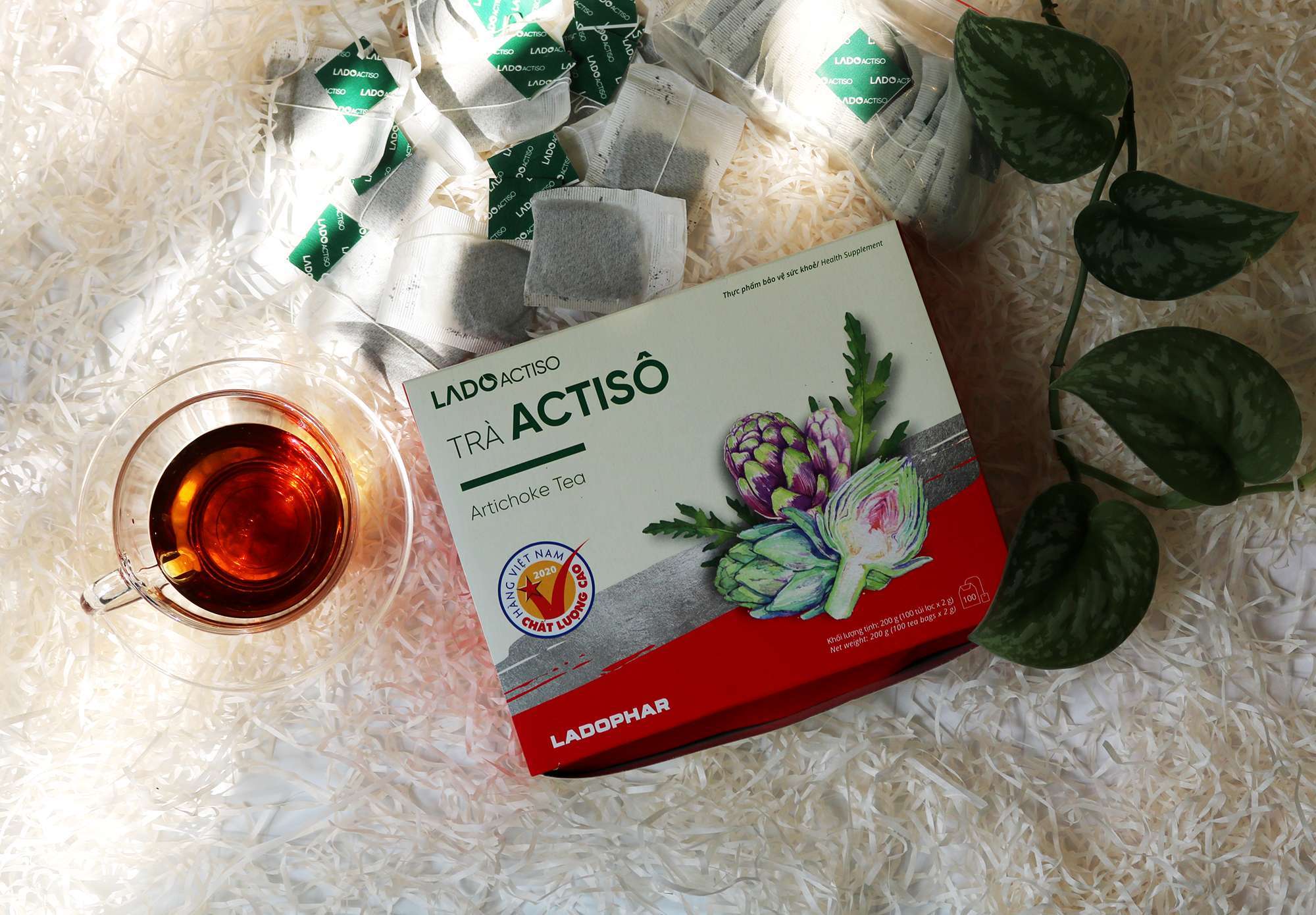
Artichoke tea
Premium artichoke tea box of 100 premium tea bags is a traditional product from artichoke with aroma from artichoke with completely natural sweetness, now added with high artichoke ingredient to enhance the prevention and protection effect of hepatobiliary.
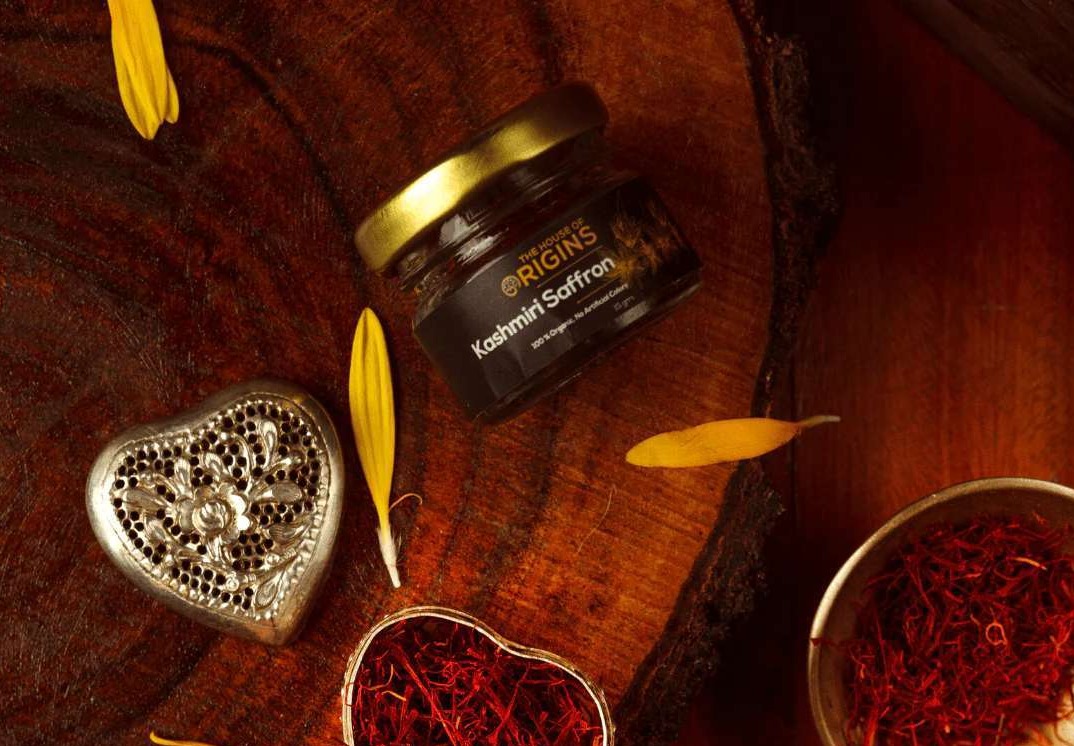
Negin Saffron Kashmiri
Negin Saffron from The House of Origins is legally sourced with high quality. There are a plethora of famous saffron raw material areas, but the Kashmiri pistil from India has a better quality because the climatic and soil conditions are more suitable for them. Each Kashmiri saffron has 3 delicate branches of saffron that are skillfully hand-picked by the local Lethapora farmer community to bring you the original and pure 'red gold'.
.jpg)
